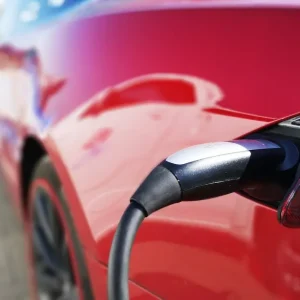With air quality and the environment making plenty of headlines in 2017 and tougher legislation to clamp down on dirtier combustion engines on its way, environmental concerns around transport have never been so topical.
Fleets have been clamouring for greener solutions to help reduce their overall carbon footprint and innovations in this area have been vast across the board this year.
It was a tough category for all of our judges but this year’s winner, the Hyundai Ioniq, emerged as the clear outright favourite.
The Ioniq is the first car to be available as a conventional hybrid, a plug-in hybrid and a pure EV in one body type, which allows fleets to choose the most fit-for-purpose method of propulsion within one car.
Going on sale in October last year, the most popular version is expected to be the hybrid, accounting for around 50% of sales, which combines a 1.6-litre petrol engine with a small 44hp electric battery and emits 79g/km of CO2.The plug-in hybrid, having only recently joined the line-up, is predicted to account for around 35?40% of sales, while the electric model picks up the remaining 10?15%.
The zero-emission electric Ioniq can officially travel 174 miles per charge, while Hyundai claims the 26g/km plug-in will travel up to 39 miles on electric power alone and is paired to a slightly more powerful 61hp electric battery.
With prices starting from just under £20,000 for the hybrid, a whisker under £25,000 for the plug-in version and £28,995 for the EV (the latter two models don’t include the government’s plug-in car grant), the Ioniq is very competitively priced compared to its rivals.
Add to that its generous equipment levels, an understated and more mainstream design, and a roomy interior with a 443-litre boot (350 for the EV), we think the Ioniq has all the ingredients of an award-winning green car.





